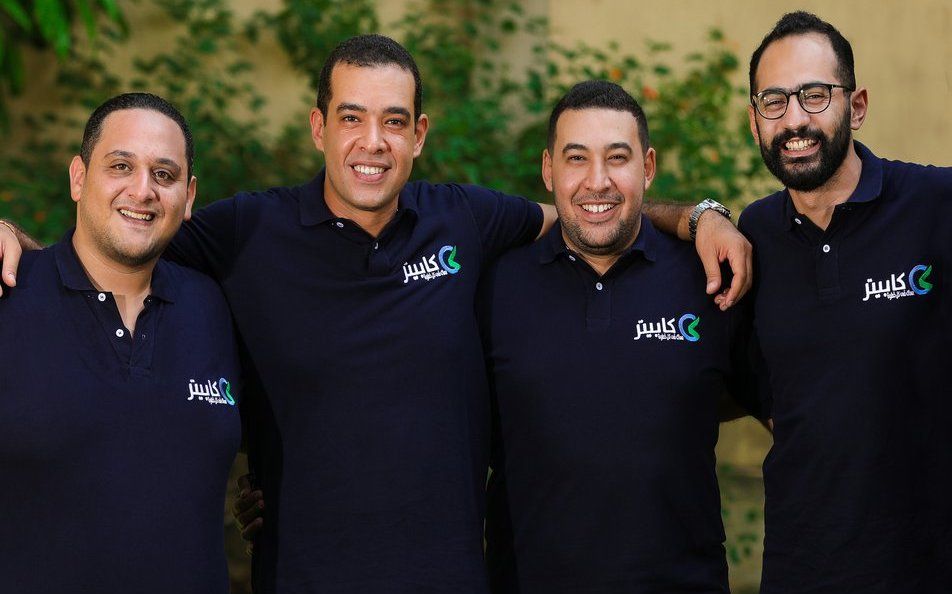Egyptian B2B e-commerce startup Capiter, which brings together manufacturers, brands, wholesalers and retailers on one platform with access to financial services, announced on Monday that it had raised has raised a $33 million Series A.
The investment was co-led by Quona Capital and MSA Capital alongside additional investors Savola, Shorooq Partners, Foundation Ventures, Accion Venture Lab, and Derayah Ventures.
The round comes as Capiter ramps up its efforts to expand its service across Egypt and the region within 2022, the company said in a statement.
Capiter represents Quona Capital’s first investment in Egypt.
Quona Capital
“Capiter’s embedded finance model, combined with its expertise and strong user engagement, can have a dramatic impact on the financial lives of SMEs, helping them optimise their income which helps communities to thrive,” Monica Brand Engel, co-founder and managing partner at Quona Capital, said.
“Quona’s investment in Capiter builds on our existing B2B e-commerce portfolio and growing presence in Mena. We look forward to helping Capiter on its journey to revolutionise the retail landscape in the region and provide a model for peers globally while increasing services for the underbanked.”
MSA Capital
Ben Harburg, Partner at MSA Capital, a global VC that has invested in fintechs like Nubank and Klarna, said: “SME supply chain inefficiencies are massive throughout the Middle East. We believe the key blocker is the lack of working capital in the system. Capiter has built an asset-light way to aggregate retailers and suppliers and facilitate credit into the system, through a comprehensive multi-product offering such as commerce, credit financing, digital payments, bookkeeping and inventory management for SMEs, leveraging on the ecosystem built by the local banks and financial institutions.”
Savola
Waleed Khalid Fatani, Savola Group CEO, said: “We, at Savola Group, believe that as part of Savola Group’s Corporate Venture Programme, this investment is an important milestone in our Egypt’s aspirations whilst allowing Capiter to benefit from our deep knowledge and experience of the FMCG in the broader MENAT region.”
For Mohamed Badran, chief strategy officer of Savola Foods, he stated: “Capiter is providing a remarkable solution to some of the key challenges we witness firsthand in our day-to-day business in Egypt. The inefficiencies of the supply chain have been a pain point for suppliers and merchants and that is being efficiently addressed by Capiter’s platform,”
Company Profile, Founders
Capiter was founded in July 2020 by serial entrepreneurs Mahmoud Nouh and Ahmed Nouh.
Mahmoud was a co-founder and a former COO of Egyptian ride-hailing unicorn Swvl. The Capiter funding found comes only three weeks after Swvl announced its potential through a SPAC deal at $1.5 billion, making Mahmoud the founder of two of the biggest startups in the region. Meanwhile, Ahmed brings a deep background as an entrepreneur in the shipping and logistics space.
Capiter provides small-to-medium enterprise (SME) businesses with a single platform that enable retailers to order a wide range of inventory, obtain delivery, and access financing all from a single platform. Through adopting cutting edge technology and machine learning, the Capiter solution also helps brands and manufacturers gain critical insights into the markets they serve, allowing them to access real data to refine their distribution strategies and increase efficiencies.
“Our entire application can be easily customised to each buyer’s needs, providing profitable insights into locations, walk-in rates, best product types, sales volume and more.” Mahmoud Nouh said.
“All of this adds up to a machine learning model that can actually help the merchant know which inventory items to purchase next. Combined with our value in providing merchants with access to financing through our local bank partnerships, we’ve created an economy-changing solution.”
Ahmed Nouh added, “We’re well-placed to scale geographically to enable more retailers across the region to use Capiter’s services while also expanding into new verticals like agriculture and pharmaceutical offerings.”
